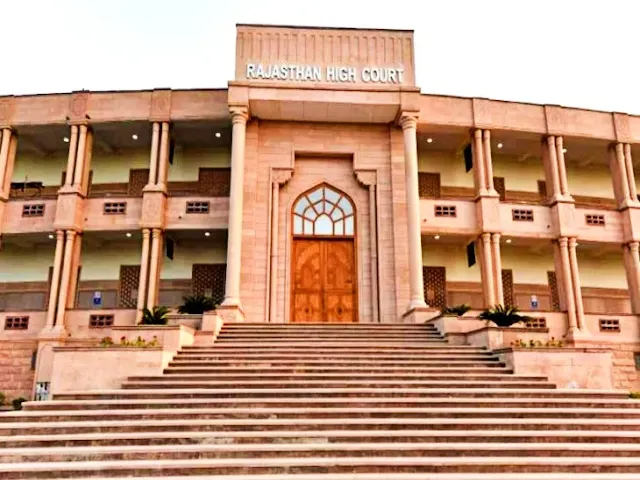In a significant judgment, the Jodhpur bench of the Rajasthan High Court addressed the interplay between Section 47 of the Registration Act, 1908, and the mandatory submission deadlines stipulated in official guidelines. The case revolved around the rejection of an applicant for an LPG distributorship due to the late registration of a lease deed, raising critical questions about the retrospective effect of registered documents and compliance with procedural timelines.
Background of the Case
The appellant had applied for an LPG distributorship and, as part of the application requirements, was obligated to submit a registered lease deed by May 24, 2023. However, the appellant's lease deed was registered after this stipulated cut-off date. Consequently, the Bharat Petroleum Corporation Limited (BPCL) rejected the application, citing non-compliance with the mandatory submission timeline as outlined in the 'Manual for Selection of LPG Distributorship.' The appellant challenged this decision, arguing that under Section 47 of the Registration Act, the registered lease deed should operate retrospectively from the date of its execution, thereby satisfying the requirement.
Legal Provisions and Arguments
Section 47 of the Registration Act states: "A registered document shall operate from the time from which it would have commenced to operate if no registration thereof had been required or made, and not from the time of its registration." The appellant contended that, based on this provision, the lease deed, once registered, should be considered effective from its execution date, which was prior to the cut-off date. This interpretation, according to the appellant, would render the submission timely and in compliance with the guidelines.
Conversely, BPCL maintained that the guidelines explicitly required the submission of a registered lease deed by the specified deadline. The corporation argued that allowing documents registered post the cut-off date to be considered would undermine the integrity of the selection process and the adherence to uniform standards.
Court's Analysis and Judgment
The division bench, comprising Justice Shree Chandrashekhar and Justice Kuldeep Mathur, delved into the scope and applicability of Section 47 in the context of procedural compliance. The court acknowledged that while Section 47 allows a registered document to take effect from its execution date between the parties involved, this retrospective effect cannot override explicit procedural requirements set forth in official guidelines.
The court observed, "The provisions under the Indian Registration Act and the Transfer of Property Act clearly indicate that a lease deed may not be valid so long as it remains unregistered, but as soon as it has been registered, it takes effect from the date of its execution." However, the bench emphasized that this principle operates primarily between the parties to the deed and does not extend to absolve an applicant from adhering to mandatory submission deadlines established by authoritative guidelines.
The judgment further clarified that extending the effect of Section 47 to negate the requirement of submitting a registered lease deed by the specified cut-off date would compromise the procedural discipline essential for fair and transparent administrative processes. The court stated, "The effect of Section 47 of the Registration Act cannot be stretched to obliterate the requirement of submitting a registered lease deed/rent deed on or before 24th May 2023."
Implications of the Judgment
This ruling underscores the judiciary's stance on maintaining the sanctity of procedural timelines in administrative and contractual contexts. While Section 47 provides for the retrospective operation of registered documents concerning the parties involved, it does not grant leeway to bypass or disregard explicit procedural requirements set by regulatory bodies or contractual agreements.
The judgment serves as a crucial reminder for applicants and stakeholders to ensure that all requisite documents are not only executed but also duly registered and submitted within the prescribed timelines. Failure to comply with such procedural mandates can result in the forfeiture of rights or opportunities, irrespective of the substantive validity of the documents involved.
In essence, the Rajasthan High Court's decision delineates the boundaries of Section 47's applicability, affirming that while the section facilitates the retrospective effectiveness of registered documents between parties, it does not extend to modifying or nullifying procedural compliance requirements imposed by authoritative guidelines or statutory provisions.










0 Comments
Thank you for your response. It will help us to improve in the future.